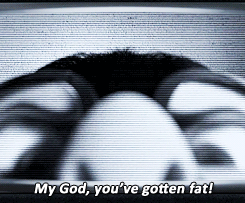Writing a Lisp, Part 2: Symbols
Last time we added booleans and negative numbers to our interpreter. But booleans and negatives are kind of boring and we’ll certainly need more features for a full Lisp. So that brings us to symbols.
What is a symbol in Lisp? Well, it’s anything that can be used as a name. So
things like hello, +, and my-god-you've-gotten-fat all work. Yes, with
the quote.

I suppose we should add a new type constructor to lobject:
type lobject =
| Fixnum of int
| Boolean of bool
| Symbol of string
And should probably handle reading it too:
(* This is slightly faster than Char.escaped and easier to read. *)
let stringOfChar c =
String.make 1 c;;
let rec read_sexp stm =
[...]
let is_symstartchar =
let isalpha = function | 'A'..'Z'|'a'..'z' -> true
| _ -> false
in
function | '*'|'/'|'>'|'<'|'='|'?'|'!'|'-'|'+' -> true
| c -> isalpha c
in
let rec read_symbol () =
(* Not necessary, but it otherwise messes up highlighting *)
let literalQuote = String.get "\"" 0 in
let is_delimiter = function | '('|')'|'{'|'}'|';' -> true
| c when c=literalQuote -> true
| c -> is_white c
in
let nc = read_char stm in
if is_delimiter nc
then let _ = unread_char stm nc in ""
else stringOfChar nc ^ read_symbol ()
in
eat_whitespace stm;
let c = read_char stm in
if is_symstartchar c
then Symbol(stringOfChar c ^ read_symbol ())
[...]
It’s unfortunately a little bit more complicated because we would like to read
a symbol until the next delimiter, without perhaps a specific pattern for what
is in the symbol. So we should check for a valid symbol-starting character with
is_symstartchar, then read a symbol with read_symbol.
read_symbol just concatenates characters until it hits a delimiter, then
backs up one. And then we construct a new Symbol! Not so terrible.
Of course, if you try and run it like so:
$ ocaml 02_symbols.ml
File "02_symbols.ml", line 87, characters 4-107:
Warning 8: this pattern-matching is not exhaustive.
Here is an example of a value that is not matched:
Symbol _
> hello
Exception: Match_failure ("02_symbols.ml", 87, 4).
$
OCaml will complain because it doesn’t know how to print_sexp on a symbol. So
it will try its best but when it encounters that case, the program crashes. We
don’t want to crash on symbols (they will after all be vital), so let’s add a
case to print_sexp:
let rec print_sexp e =
match e with
| Fixnum(v) -> print_int v
| Boolean(b) -> print_string (if b then "#t" else "#f")
| Symbol(s) -> print_string s
And that should work!
$ ocaml 02_symbols.ml
> hello
hello
> +
+
> my-god-you've-gotten-fat
my-god-you've-gotten-fat
> ^C
$
Great – It prints everything out all nicely. Now that we have symbols, booleans, and ints, we can finally build up to collections of all of the above!
Download the code here if you want to mess with it.
Next up, lists.